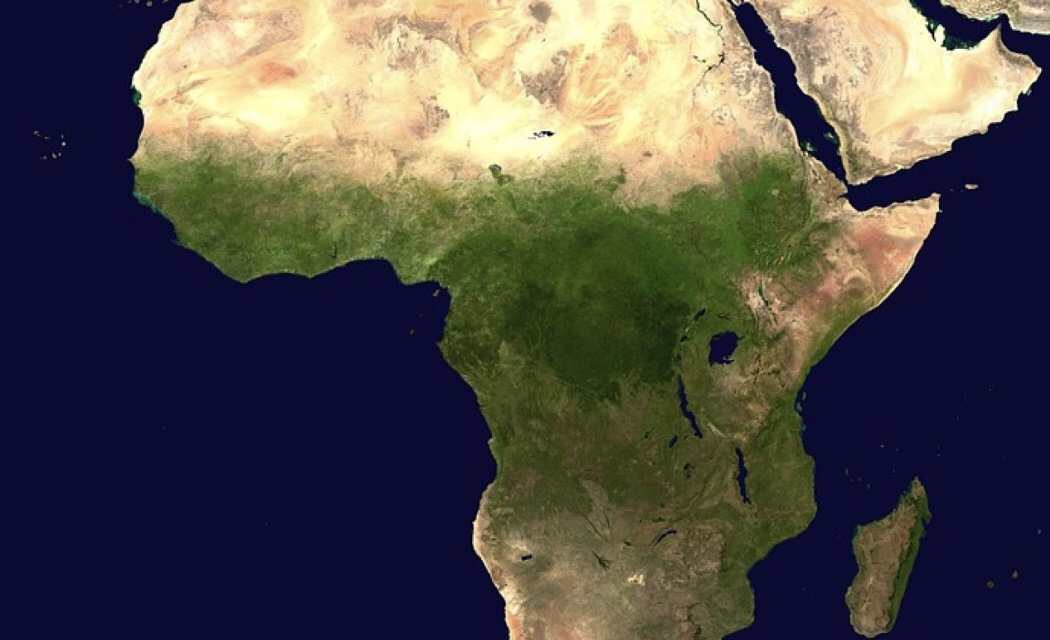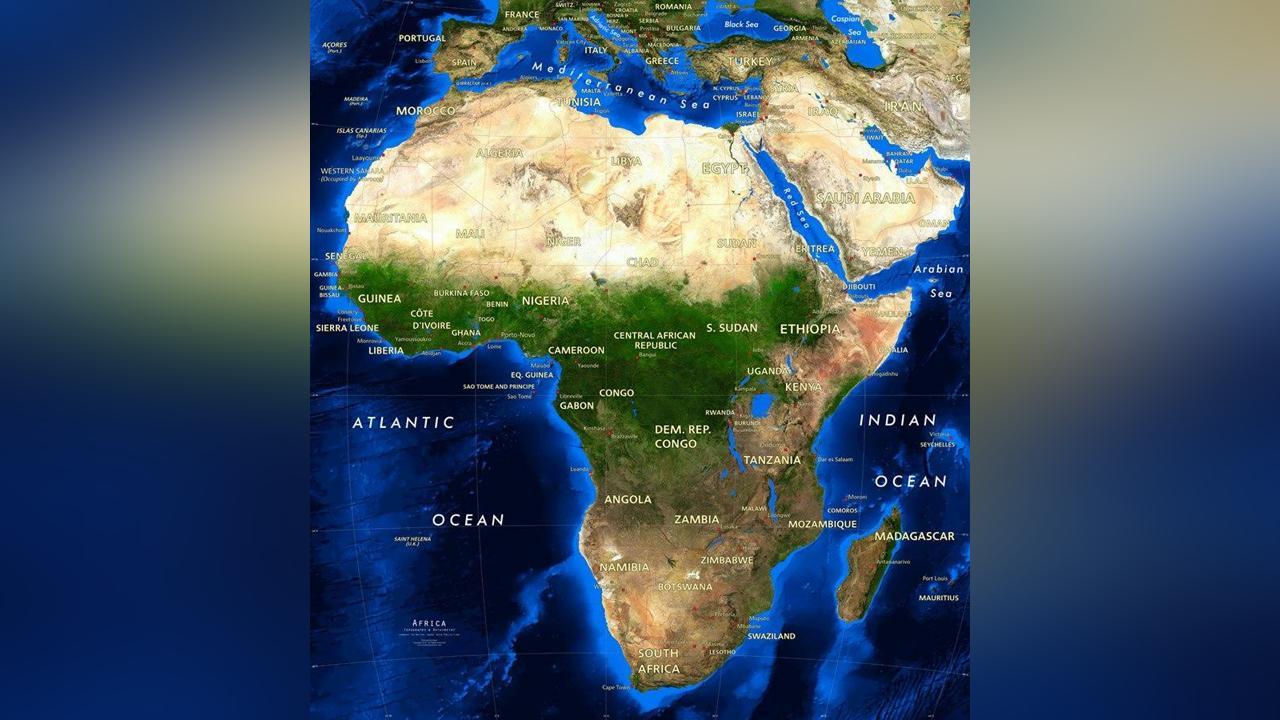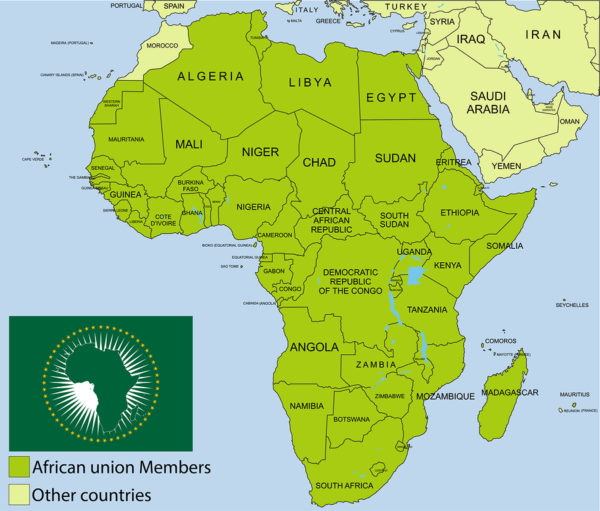13, Apr 2024
A Continent Unbound: Exploring The Significance Of A Borderless Africa
A Continent Unbound: Exploring the Significance of a Borderless Africa
Related Articles: A Continent Unbound: Exploring the Significance of a Borderless Africa
Introduction
With great pleasure, we will explore the intriguing topic related to A Continent Unbound: Exploring the Significance of a Borderless Africa. Let’s weave interesting information and offer fresh perspectives to the readers.
Table of Content
A Continent Unbound: Exploring the Significance of a Borderless Africa

The map of Africa, as we know it, is a patchwork of lines drawn by colonial powers, often disregarding the complex tapestry of cultures, languages, and ecosystems that define the continent. This legacy of artificial boundaries has had a profound impact on Africa, contributing to conflict, hindering economic development, and obscuring the continent’s shared history and destiny. A map of Africa without borders, however, presents a powerful vision of unity, collaboration, and shared prosperity.
Visualizing a Unified Africa:
Imagine a map of Africa devoid of the lines that divide it. The familiar political boundaries, imposed by external forces, disappear, revealing a continent unified by its shared geography, heritage, and aspirations. This map, while a symbolic representation, holds the potential to inspire a shift in perspective, moving away from the limitations of artificial borders and towards a vision of a truly integrated Africa.
Beyond the Lines: The Impact of Borders:
The borders that crisscross Africa are not mere lines on a map; they are tangible barriers that have had a significant impact on the continent’s social, economic, and political landscape.
- Conflict and Instability: Arbitrary borders often cut through ethnic groups, creating tensions and fueling conflict. The legacy of colonial boundaries continues to contribute to instability in many regions, making it difficult to build lasting peace and development.
- Economic Disadvantage: Borders hinder free movement of people, goods, and services, impeding economic integration and hindering trade. This creates economic disparities, leaving some regions isolated and struggling to access essential resources and markets.
- Cultural Disconnect: Borders can isolate communities from their cultural kin, hindering the flow of knowledge, ideas, and traditions. This fragmentation undermines the richness and diversity of African cultures, limiting the potential for cultural exchange and understanding.
A Continent United: The Promise of a Borderless Africa
A map of Africa without borders represents a powerful vision of a continent united, working together to overcome historical challenges and build a brighter future. This vision embraces the following principles:
- Pan-Africanism: A borderless Africa embodies the spirit of Pan-Africanism, fostering unity and solidarity across the continent. This vision recognizes the shared history, culture, and destiny of all Africans, transcending artificial divisions.
- Economic Integration: Without borders, trade and investment flow freely across the continent, creating a single market and unleashing the potential for economic growth and prosperity. This fosters regional development, empowering local communities and creating opportunities for all Africans.
- Cultural Exchange: A borderless Africa promotes cultural exchange and understanding, fostering a vibrant tapestry of diverse traditions, languages, and perspectives. This enriches the African experience, celebrating the continent’s rich heritage and fostering a sense of shared identity.
- Shared Resources: A borderless Africa allows for the equitable sharing of resources, ensuring that all communities benefit from the continent’s natural wealth. This promotes sustainable development, protecting the environment and ensuring that future generations inherit a thriving continent.
FAQs: Addressing Concerns and Misconceptions
Q: Does a borderless Africa mean the complete abolition of national identities?
A: A borderless Africa does not erase national identities. It is a vision of a unified continent that recognizes and celebrates the diversity of its peoples while fostering collaboration and shared prosperity. National identities can coexist with a broader sense of African unity.
Q: How can we overcome the logistical challenges of a borderless Africa?
A: The transition to a borderless Africa will require careful planning and implementation. It involves addressing logistical challenges such as infrastructure development, harmonization of laws and regulations, and the establishment of effective regional governance structures. These challenges are not insurmountable, and creative solutions can be developed through collaboration and shared commitment.
Q: Is a borderless Africa a utopian dream?
A: While a borderless Africa may seem utopian, it is a vision rooted in the shared aspirations of many Africans for a more integrated and prosperous continent. It is a vision that can be achieved through sustained effort, political will, and a commitment to building a brighter future for all Africans.
Tips for Embracing the Vision of a Borderless Africa:
- Educate Yourself: Learn about the history of colonial borders and their impact on Africa. Understand the diverse cultures, languages, and ecosystems that make up the continent.
- Support Pan-African Initiatives: Engage with organizations and initiatives that promote Pan-Africanism and foster collaboration between African nations.
- Advocate for Change: Speak out against the negative consequences of artificial borders and advocate for policies that promote regional integration and economic development.
- Embrace Cultural Exchange: Engage with African cultures and traditions, fostering understanding and appreciation for the continent’s rich diversity.
Conclusion: A Call for Unity and Transformation
A map of Africa without borders is a powerful symbol of unity, collaboration, and shared prosperity. It represents a vision of a continent free from the limitations of artificial boundaries, working together to overcome historical challenges and build a brighter future for all Africans. This vision requires sustained effort, political will, and a commitment to building a continent where all people can thrive. It is a call for transformation, a call for unity, and a call for a future where Africa’s true potential can be realized.








Closure
Thus, we hope this article has provided valuable insights into A Continent Unbound: Exploring the Significance of a Borderless Africa. We appreciate your attention to our article. See you in our next article!
- 0
- By admin
